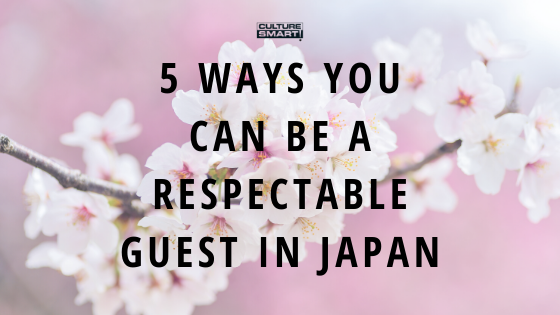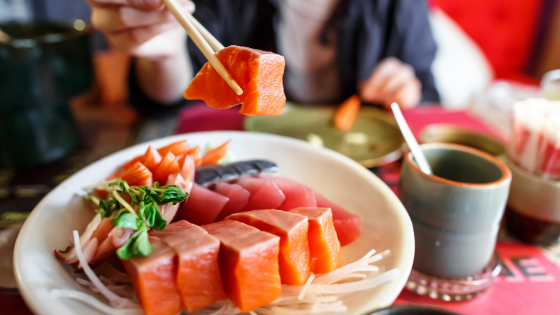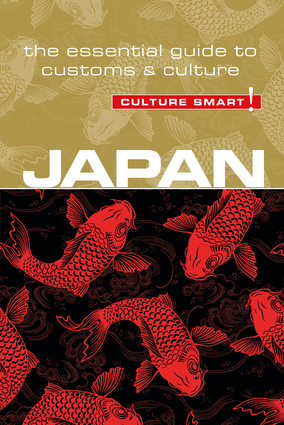5 Ways You Can Be a Respectable Guest in Japan

In Japan, being punctual is an expression of good manners. Excuses relating to traffic etc. will not save you as everybody has to deal with that – even if you are a first time visitor. Profuse apologies and a humble demeanour are more appropriate.
- Taboo topics to avoid in conversation:
If you want to win friends, do not start a conversation on the subject of the Yakuza – they are not supposed to ‘exist’ (sorry Giri/Haji fans!). Yakuza are a part of Japan’s historical social structure – highlight trained gangsters famed for their ornate all body tattoos, flashy limos and the missing top of the little fingers. Japanese police simply accept their existence and won’t interfere unless something severe happens. The Yakuza rarely bothers foreign businessmen or tourists.
Other topics to avoid:
Merits or otherwise of the emperor system, Japanese outcasts (Bwakumin), and the Second World War.

- Meals in Japan traditionally begin with the phrase “itadakimaxi” (I humbly receive), said in unison. It is similar to “Bon appetite” or saying Grace to give thanks before a meal.
- The guest is required to take small portions from each dish without neglecting any.
- Bowls should be lifted in the hand when eating from them.
- It is not good manners to linger too long over any one kind of food. But of course, as a foreigner, you can leave untouched any dish you don’t like.
- At the end of the meal, say “go-chiso-sama desh’ta” (meaning “It was a feast” or “Thanks for the meal”) on leaving, and bow slightly.
Gift giving in Japan is a form of social lubricant to smooth social interactions in the widest sense.
- Gifts should always be wrapped – the presentation of a gift is profoundly important.
- A gift once offered cannot be refused – except if it seems like a bribe, in which case it should be returned promptly.
- The Japanese traditionally do not open the gift in the presence of the giver. This allows face to be saved if it turns out to be more (or less) expensive than was assumed to be the case, or is quite inappropriate. However there may be times when you are asked to open your gift, which you should do so graciously.

Giving effusive thanks for minor matters and incidental help and support are common in Japan. It is always good therefore to express your own gratitude more often than you might at home. So, on meeting the person in question again, reinforce your original appreciation by saying such things as “thank you for your kindness/help/assistance the other day”, regardless of how trivial it may have been.
Our Culture Smart! Essential Guide to Customs and Culture JAPAN is available in the shop as ebook or physical copy!
